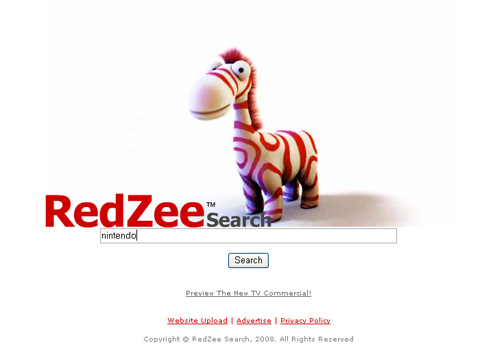 This is cute: “Do we still need websites?” asks some guy writing on a website.
This is cute: “Do we still need websites?” asks some guy writing on a website.
Next time write it on Facebook, mister, and see how that works for you.
DISCLOSURE: I regularly design and publish websites.
[youtube]http://www.youtube.com/watch?v=oWV6iklM_HQ[/youtube]Microsoft thinks so. And they’re newest commercial says so: “I can’t pick a restaurant in all these links,” an indecisive women using Google replies, when asked “What’s taking you so long?”
I can’t speak for everyone, but I’ve never felt overwhelmed by Google results. It’s not information overload if I find what I’m looking forward on the first results page, second at most. It’s almost as if Microsoft is confusing relevance with lack of choice.
I’m all for keeping Google on their toes through competition, but build a better mousetrap if you want to compete.
I was pretty stoked by the U.S.’s 2-0 victory over Spain today, which vaulted the unlikely team into the final of the Confederations Cup, a World Cup warmup. In my excitment, I do what I always do: head to Twitter Search (no account required) to start reading immediate reactions from fans. (Google is just too slow sometimes.)
Without an active Twitter account, I don’t participate in the conversation—I do that elsewhere; on my blog, on Facebook, and in various comment sections. But it’s fun to get up-to-the-second reactions to breaking news in one location, without perpetrating your offline life like so many Twitter users seem to do.

When will software executives finally learn that speed of functionality will always trump bells and whistles. You’d think RedZee and SearchMe would already know this after the “we’ve got more glitz” Ask.com called it quits last week.
Build a better mouse trap, people — not a sexier one. Google is number one because it returns relevant results faster than others. It takes a lot more than good looks to be “cool.”
What do you get when you mix Slashdot community ratings with MySpace social networking and Delicious tags to let users categorize stories? You get Digg.com, the company I believe is revolutionizing relevant search and turning the news into a democracy. I’ve said it before, and I’ll say it again, search engine optimization, machine algorithms, and search engine bots are on the way out. Though it may be several years, people engines via the social web will be the future of search relevancy. Don’t get me wrong, I think indexing will still be used, but human relevancy is far superior.
From the article: “Imagine being able, for example, to use Digg to explore the popularity of consumer products such as cell phones or plasma TVs–to be able, as Rose put it, “to drill down among your set of friends or the masses and see their opinions.” Then imagine this capacity married to the recommendation-engine feature that Rose and his team are working on. In other words, Consumer Reports, look out.”
 This is cute: “Do we still need websites?” asks some guy writing on a website.
This is cute: “Do we still need websites?” asks some guy writing on a website.
